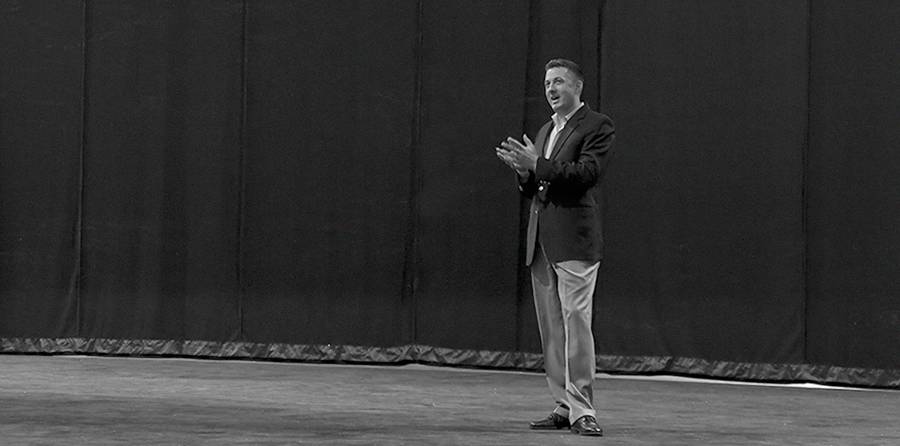Theatre As Metaphor: An Actor In A Business Suit

Stories about business and leadership in the popular media serve as foils for our own experiences in the “real” world. We watch Michael Douglas’ character and compare his actions to our own. We see Meryl Streep in her business suit and imagine how we would behave under those circumstances.
What is the value of the metaphor of theatre as it applies to understanding human relationships in the office? As I was thinking about this the other day, I discovered an image that seems to serve as a useful method to explore this idea. Picture, if you will, an actor in a business suit. As I consider this image, I find three ways to interpret it.
The first is a Hollywood composite. We might imagine Michael Douglas in the Wall Street movie series or Meryl Streep in the The Devil Wears Prada or The Iron Lady. We see a famous and attractive actor, dressed up to play a character who, depending on the particular story, is a running a business or performing the actions of a leader in the world of high finance, fashion or government.
Stories about business and leadership in the popular media serve as foils for our own experiences in the “real” world. We watch Michael Douglas’ character and compare his actions to our own. We see Meryl Streep in her business suit and imagine how we would behave under those circumstances.
The second interpretation of an “actor in a business suit” is actually quite close to me—because that’s in fact who I am and what I do. Originally trained as a classical Shakespearean actor, I have spent the last 20 years of my career as an arts-based educator and executive coach in the corporate world. There is a small industry of artists like myself who have crossed over to the world of training and development. The actor in the business suit, in this context, is able to facilitate a provocative classroom experience with business leaders in which issues of management are explored through the lens of the arts.
The third interpretation, however, is the most interesting and meaningful. If we view “an actor in a business suit” as a metaphor, what we might see is a busy sidewalk at lunch hour in almost any urban centre of the world. We see throngs of people, walking quickly to their next appointment, dressed up in the external clothing that is required for their field of work. In this interpretation everyone is an actor, dressed up in a broad variety of business suits. For some, the role requires us to wear an actual suit; for others it’s a pair of jeans, or a skirt or a sari or a thawb or a uniform. In every case it’s just a set of clothes, worn by a real human being who is doing his or her business and performing the job at hand.
I would propose that to see our lives through the lens of the theatre can be a liberating perspective. It suggests that there is always more than meets the eye. It reminds us that if we seek to understand what lies behind our first impressions, we can often find more substantive and valuable information. Seeing ourselves and our colleagues as fellow actors in a shared drama invites us to deepen our empathy for the story that exists behind the presentation. It helps us to remember the distinction between the person, which is most important, and their role in the office, which is only one aspect of their rich and complex lives.
All the world’s a stage, and all the men and women merely players. We are all actors in our business suits. And one man, in his time, plays many parts.
